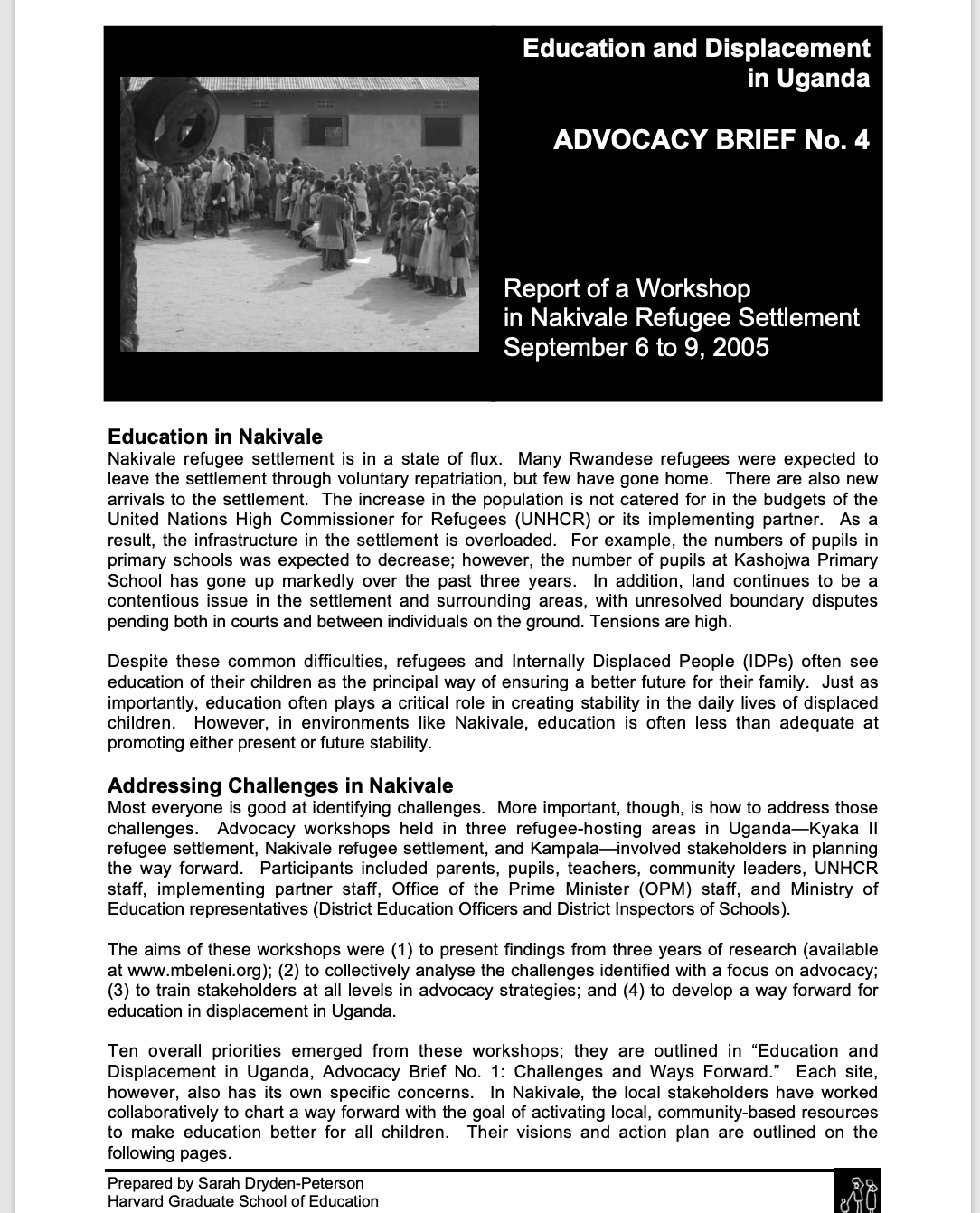In a context where nearly all residents of Gulu and Kitgum are displaced, government and humanitarian actors have increasingly sought to target those with the greatest need through the identification of ‘vulnerable groups.’ This amorphous population has typically included women, children, the sick, disabled, and elderly. Taken together, these groups in fact form the majority of the internally displaced population of northern Uganda, making the term ‘vulnerable’ almost meaningless. One of the principal findings of this research was that the ‘vulnerable groups’ approach serves to oversimplify the complex socio-economic dynamics that impact upon IDPs’ full enjoyment of human rights. It ignores the ways in which members of particular groups take steps to mitigate against their so-called vulnerabilities.
Reports by Access to Justice for Forced Migrants
Aside from working papers and seminars the RLP produces a range of publications for multiple purposes. The research is targeted at a range of audiences (eg academia, government officials or the public) and aims to produce information quickly on time-sensitive issues. These result in special reports compiled either through individual consultancies or for external publications, including briefing notes that represent immediate but preliminary observations from the field, letters sent to the national newspapers or advocacy briefs that attempt to bring attention to specific thematic areas.
Refugees and Internally Displaced People often see education of their children as the principal way of ensuring a better future for their family. However, education in exile is often less than adequate at promoting either present or future stability. Children, parents, and teachers face numerous educational challenges in situations of displacement. More important, though, is how to address these challenges. Advocacy workshops held in three refugee-hosting areas in Uganda involved stakeholders in planning the way forward. Participants included parents, pupils, teachers, community leaders, UNHCR staff, implementing partner staff, Office of the Prime Minister staff, and Ministry of Education representatives.
- Education and displacement in Uganda: Report on workshop in Nakivale refugee settlement (Sep 2005)
- Education and displacement in Uganda: Report on workshop in Kampala (Aug 2005)
- Education and displacement in Uganda: Report on workshop in Kyaka II refugee settlement (Aug 2005)
- Education and displacement in Uganda: Challenges and Way Forward (2005)





